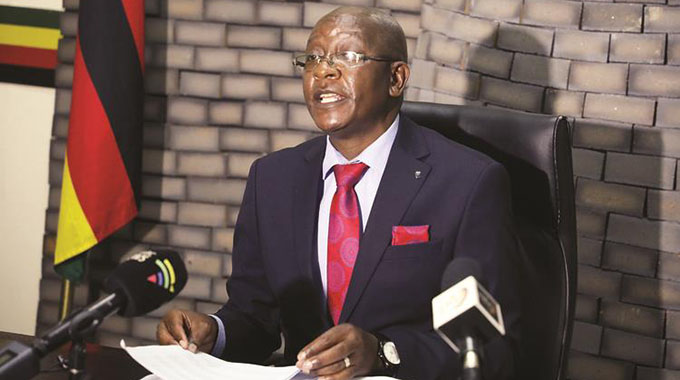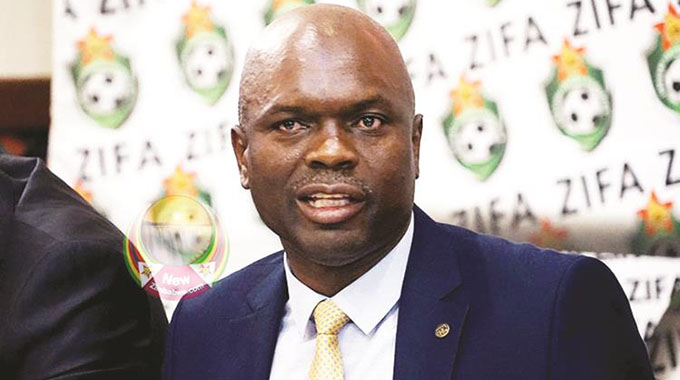We’ll compromise on lobola law: Ziyambi

Zvamaida Murwira Senior Reporter
The Government is ready to compromise and accede to the inclusion of lobola as a legal requirement for registering customary unions in the proposed integrated Marriages Act.
There has been a deadlock between Government and traditional leaders over a clause in the Bill which stipulates that payment of lobola must not be used as a prerequisite for a couple to register any marriage, on the grounds that only the couple can make any conditions for a marriage and that no one else can grant or withhold permission for a union.
Under the proposed law, there are two types of registered marriage. The civil marriage is basically word-for-word from the present Marriages Act, the sort of marriage done at the magistrates court or in a church where the officiating minister is an honorary marriages officer.
More change is seen in the registration process for a customary union.
The old system where the couple and the intermediaries had to go to a district administrator’s office to get a certificate is dumped.
While the basic customary law of each area is retained, the registering of the customary marriage is now also before a magistrate or the chief of the area with only the consent of two adult Zimbabweans, the couple themselves, required.
Critically the two types of marriage are now connected. A monogamous couple can convert a registered customary marriage to a registered civil marriage by filling out a form.
The main reason why the old registration system fell into disuse was that most couples wanted both, a customary marriage and a civil marriage in church and the only legal way of doing this was having an unregistered customary union followed by the church service.
The Bill also makes it clear that both parties to any marriage have to be at least 18 and both have to agree, and it puts in place provisions that allow unregistered customary unions to be registered and even for the ways property will be divided when a couple simply living together split up.
Debate on the Bill that sorts out the marriage law had to be adjourned several times to allow consultations, but an agreement on the issue remains elusive.
Because of the make-up of the Senate, the Government requires the votes of the senator chiefs, or the votes of the opposition senators, to pass legislation. So the senator chiefs can block approval, and on one clause of the Bill they have.
Justice, Legal and Parliamentary Affairs Minister Ziyambi Ziyambi steered debate on the Bill again on Wednesday, proposing that the Bill be passed, capturing the concerns of the traditional leaders in which lobola would be made a requirement in registering customary marriages as demanded by traditional leaders, who have consistently maintained that it is a core part of a customary union.
The Minister’s earlier proposal to defer inclusion of the clause on lobola to the Traditional Leaders Amendment Bill, which he said was still on the drafting stage, was rejected.
Minister Ziyambi said continued deferment the passage of the Bill over just one point had the effect of prejudicing the nation of other pertinent benefits in the proposed law such as criminalising child marriage which has been a menace in society of late.
He said what also made the passage of the Bill urgent was the fact that Parliament was set to adjourn this week only to resume in October when President Mnangagwa opens the Fourth Session of the Ninth Parliament where he will deliver State of the Nation Address.
Senators led by Manicaland traditional leader, Chief Shepherd Makumbe insisted that their caucus was due to consider the Bill next week hence there was need to defer it.
At some point emotions ran high with Senators complaining that they had been ambushed while Minister Ziyambi said it was preposterous for anyone to say he was taken by surprise on a Bill which has been pending since April this year in Senate.
Minister Ziyambi said if he had no respect for traditional leaders he would have just invoked provisions of the Constitution by allowing Senate to vote against it and return to the National Assembly where it will sail through before taking it to the President for his assent.
The Constitution provides that where the Senate and National Assembly disagrees on a Bill, it is the view of the National Assembly that will prevail.
“While I hear what Honourable Senator Chiefs are saying, I am also mindful, like I said, the issue of lobola is actually not a serious issue compared to child marriages. We had a scenario where this has been in the public domain for some time. In the National Assembly, two weeks ago, I was given a torrid time over not finalising this Bill given what is happening in terms of child marriages.
“Unless something can be drawn up tonight and those that are around can come up with proposals — I had agreed to say we can put it to them to say that according to customary marriage, you have to show proof that you have paid lobola, because for the other marriage we passed the Bill as it is. It is not subject to debate anymore because we agreed that the provision is not necessary,” said Minister Ziyambi referring to the civil marriage.
“We are now delaying everything else that is good in this Bill because of one issue so I agreed that let us put the lobola thing in there. I even offered to say okay, bring whoever you want and I will identify officers and say sit there and agree on the amendment and we do it.”
He said claims by traditional leaders attributing the delay on the Bill on Covid 19 was not prudent given that there were several other Bills that were passed under the same conditions of the pandemic.
Following a protracted debate, there was no headway resulting in another adjournment of debate on the Bill.
The adjournment would now mean that the Bill would be retabled during the Fourth Session of the Ninth Parliament.
Government has been arguing that lobola could not be used as an obstacle in solemnising marriage by two consenting adults while traditional leaders have argued that bride price was the hallmark of any customary union.









Comments